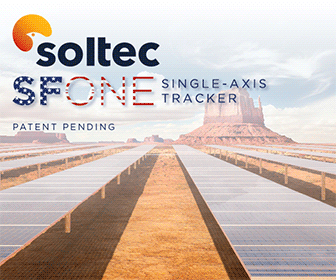SolarWorld Praises ITC Report
SolarWorld Americas Inc. praised a U.S. International Trade Commission report for its portrayal of a pivotal but import-damaged U.S. solar cell and panel manufacturing industry and the industry's critical need for assistance in coping with foreign overcapacities and a global import surge.
The largest U.S. solar manufacturer for more than 42 years, SolarWorld is a co-petitioner in a Section 201 global safeguards trade action. The bipartisan ITC voted 4-0 that a surge of imports is seriously injuring the domestic industry. The newly released 400-page report provides background on the ITC's remedy recommendations to President Trump.
The report cautions that without adequate relief, the domestic industry "would likely cease to exist in the short term." The report notes that "current CSPV cell and module technology is to a substantial degree a product of R&D and innovation in the United States, including by the petitioners," and that "the loss of the domestic industry, and the resulting reliance of downstream industries on foreign producers of (solar) products, could have significant long-term consequences for U.S. economic and national security interests."
According to ITC Vice Chairman David Johanson and Commissioner Irving Williamson, the loss of domestic solar cell and module manufacturing also would hurt downstream market participants who "would become more dependent on foreign suppliers of (solar) products ..., leaving them vulnerable both as to price and supply."
The report recognizes the intractable nature of the import flow. "The foreign industries have demonstrated an ability to redirect exports from one market to another and to increase exports substantially to individual markets from one year to the next," the report says.
Commissioner Meredith Broadbent's remedy recommendation underscores the Chinese government's involvement in its solar industry, including through the provision of massive government subsidies. "The key driver of rapid growth and overcapacity in the Chinese industry has been a mixture of government-driven industrial policy and ad hoc provincial and local subsidies," she says. According to Broadbent, these subsidies include tax rebates, preferential lending, grants, R&D support and subsidized inputs, including land, electricity, polysilicon, aluminum and glass -- "among other incentives."
Broadbent acknowledges that two previous trade cases led to duties on Chinese imports "designed to remedy the unfair trade resulting from the subsidies ..." "Nonetheless, Chinese firms have taken deliberate steps to avoid these remedies ... first by using cells produced in Taiwan while continuing to assemble modules in China, and then by investing heavily in production elsewhere in Asia, particularly in Southeast Asia and South Korea."
President Trump now has until January 13, 2018, to issue his remedy determination.
SolarWorld | www.solarworld.com









.jpg?r=8273)
.jpg?r=9230)
.gif?r=4233)
